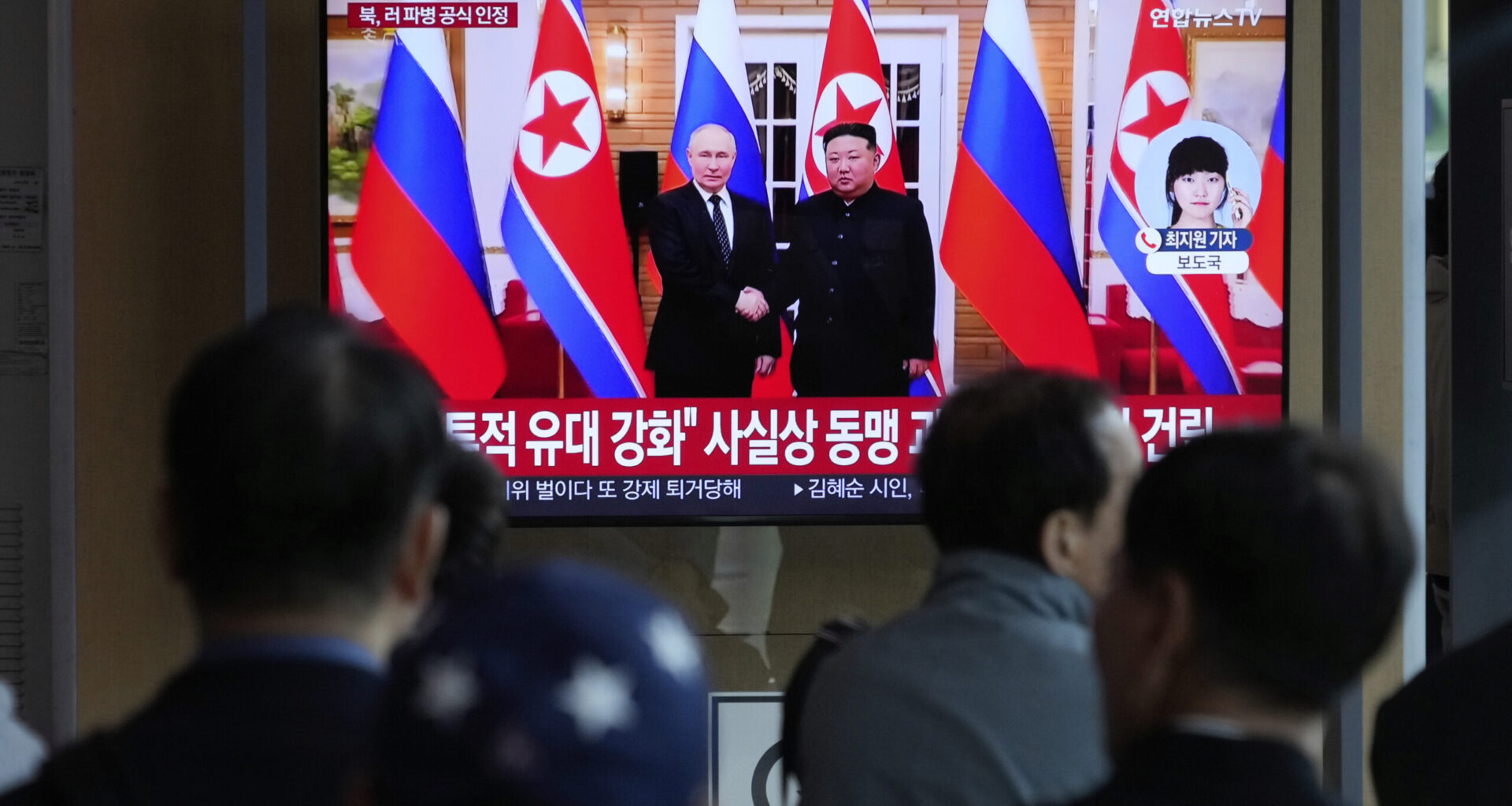South Korea is getting nowhere in attempting to renew dialogue with North Korea. Similarly, President Trump is not likely to be able to resume his once great relationship with North Korea’s leader, Kim Jong-un, at least not in the foreseeable future.
That’s the message Mr. Kim’s younger sister, Kim Yo-jong, is conveying in a fiery diatribe in which she blames America and South Korea for having caused “the deteriorating situation on the Korean peninsula.”
Ms. Kim, noted for blasts at both South Korea and America that reflect the policies and outlook of her powerful brother, ascends rhetorical heights as she declares, “The land of the ROK” — Republic of Korea — “will be stained by powder fumes through the successive large-scale joint military drills of aggressive nature, and the United States and the ROK will try to shift the blame.”
“No matter how desperately” the South’s new president, Lee Jae-myung, “tries to attract our attention,” she writes in an article carried in English by Pyongyang’s Korean Central News Agency, “there can be no change in our state’s understanding of the enemy.” Whatever policy or proposal is made at Seoul, she says, “We have no interest.”
Ms. Kim’s latest attack focuses primarily on Seoul, not Washington, but the inference is that Pyongyang is closed to all suggestions for turning back the clock to the period in 2018 and 2019, in the aftermath of the Winter Olympics in South Korea that Ms. Kim attended in an unprecedented display of North-South good will. Rapprochement appeared possible in June 2018 when Mr. Trump met Mr. Kim in Singapore, during which he has often said they “fell in love.”
The two leaders may have hugged for the benefit of the cameras, but the good will faded when Mr. Trump walked out of their second summit, at Hanoi in February 2019. Not even an impromptu meeting four months later at the truce village of Panmunjom, in the demilitarized zone between North and South Korea, could revive the high hopes surrounding the Singapore summit. Mr. Trump had been at Seoul to meet the man who was then president of South Korea, Moon Jae-in, an ardent advocate of rapprochement, but tensions have only increased since those halcyon days.
Ms. Kim sees little or no difference between the policies of President Lee, a liberal elected by a wide margin over a conservative candidate in a “snap election” after the impeachment and ouster of his conservative predecessor, Yoon Suk-yeol.
“The ROK authorities made such sweet remarks as defusing tension on the Korean peninsula and improving the DPRK-ROK relations,” she said, using the initials for the formal names of both countries, the DPRK for Democratic People’s Republic of Korea, “but their blind trust to the ROK-U.S. alliance and their attempt to stand in confrontation with the DPRK are little short of their predecessor’s.”
Ms. Kim overlooks, however, important details that account for the deepening chasm between the two Koreas. She did not say a word about the North’s nuclear program. North Korea has not tested a nuclear warhead in nearly eight years but is believed to have a stockpile of 100 or so warheads, many hidden in caves and tunnels outside the North’s main nuclear complex. Her brother’s refusal to budge on demands for “denuclearization” explains the ultimate failure of all the summits of 2018-19.
Nor did she mention what may be the main reason for Hanoi’s show of defiance: the relationship that Mr. Kim has formed with President Putin. North Korea is now dispatching several thousand more troops to Russia after sending about 12,000 last year, and it continues to ship a steady flow of artillery shells in addition to other weaponry that Russia needs to keep up its failed effort to conquer Ukraine.
South Korea, under its liberal leadership, is basically turning the other cheek to Ms. Kim’s rhetorical assault. President Lee persisted in saying it was “important to restore trust between South and North Korea while making efforts to build peace.”
Also worrisome, from the American viewpoint, is that the South’s new unification minister, Chung Dong-young, said he intends to propose adjusting joint South Korean-American military exercises, according to Seoul’s Yonhap News. Mr. Yoon, before he was impeached, had enthusiastically approved joint exercises, but Mr. Chung implied the South might refuse to approve them in hopes of convincing Pyongyang of its good will.
